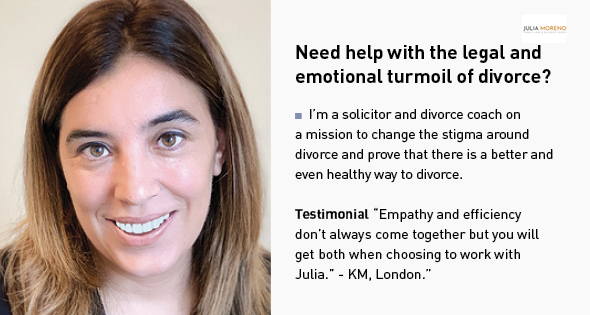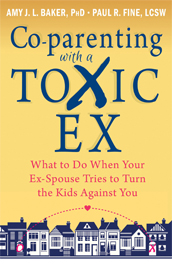How To Address Your Divorce Fears

- This blog contains affiliate links, which we may receive a commission for purchases. The decision is yours, whether or not you decide to buy.
One of the emotions that almost everyone going through a divorce experiences is fear. Fear is a very powerful emotion that can have a strong effect on your mind and body.
People fear things or situations that make them feel unsafe or unsure. So, when facing divorce, it is absolutely normal to have fear because lots of uncertainty and changes are coming your way. Indeed, divorce will have an impact on many areas of your life.
Most probably you won’t be able to remove all the fear and it’s natural to feel it at some level. In fact, it is likely to be your companion throughout your divorce so it is important to learn how to manage it. So how do you address your fears?
The first step is to become aware of your fears. My suggestion is that you take a few minutes to write down whatever you are afraid of about your divorce. Then, read your list and start dealing with your fears. Don’t deal with them all at once. Take one fear at a time to avoid getting overwhelmed and ask yourself the following questions:
Is your fear a stereotype brought by cultural conditioning?
Some of our beliefs are influenced by the society we live in. You may act, speak or think based on the environment you grew up in. However, such cultural conditioning may not always be correct or in line with the current times.
For example, you may worry about the impact the divorce will have on your children because you have been led to believe by your society that “divorce damages children”.
However, have you investigated if such a belief is actually true? Well, let me tell you that it isn’t. Researchers have demonstrated that it is the conflict between the parents that leaves an impact on the children and not the divorce.
In fact, the modeling of a conflictive marriage is probably more detrimental. If “damaging your children” is one of your fears, my advice is that you use it to guide you when making decisions in relation to the divorce process, i.e. give priority to your children’s needs.
When you discover that your cultural conditioning fear is false or out of date, it will be easier for you to let go of it.
Is your fear giving you information?
Fear is like any other emotion. However, many people’s relationship with fear is that it is “bad”. What if we change this around and instead of giving fear a “negative” connotation, we treat it like a friend? I say this because fear is commonly trying to give us a message.
For instance, you may be afraid that you won’t be able to maintain the same lifestyle you had when married. You may be asking yourself questions such as:
How will I survive?
Where will I live?
If I go back to work, can I afford childcare?
These fears are actually talking to you. They are telling you: “Hold on, you might need help. Take action. Go and get the information you need, do research or appoint a professional”.
It is when you find the answers that you will gain clarity and feel more comfortable. You will feel empowered to take any necessary steps to dissipate those fears.
If your fear is feeding you information, be mindful and befriend your fear. Allow it to inform you, listen and take the necessary action.
Is your fear a made up story about something that has not happened yet?
You may be saying “I’m afraid nobody is going to love me”. Isn’t this a made up story that you have projected into your future? It hasn’t happened and it may not happen.
What if instead of believing such a story that made you afraid, you make up an alternative story which empowers you? For example, “I’m going to be authentic and I’m going to attract the love that I deserve”.
You may be fearful of the unknown or about your new future post-divorce. But, have these things actually happened?
Most fears are geared towards a potential threat in the future. They are typically not even happening in the present moment and they may not materialize.
If you observe that your thoughts are attached to something that hasn’t even occurred yet, then have the courage to abandon those thoughts and live more presently in the here and now.
Is it fear of failure?
You may be thinking whether you will regret your decision to divorce. Perhaps you are worried of making a mistake during the divorce process or not achieving the right financial settlement. These fears are likely to accompany you during the process.
So you will need to embrace them even as you make progress. Let these fears teach you to be courageous. You can use them to guide you about the steps you need to take with questions like:
- Is there something I need to learn?
- Do I want to do anything differently?
- What do I need to improve?
- Can I get help?
To address those fears, you may need preparation. You may need to find further information or help from a professional. Focus on the process and give it your very best by being prepared for each eventuality and dealing with whatever arises as and when it takes place.
And if you fail? Deal with that failure when it happens. Failure is a learning experience. It’s a lesson that will make you better.
Remember, most successful people have achieved success because they have come across many failures throughout their journey. So start associating failure with getting closer to your intention.
Is your fear of failure linked to shame? For example, you are worried about what other people will think of you because you are getting divorced. Or, perhaps, you are afraid of disappointing someone you love because your marriage is ending.
Let me just ask you to consider this one and only question: Is that person’s opinion more valuable than you, your life and your happiness?
There are other methods and different people find distinct ways of managing fear. However, what is generally accepted is that fear can paralyse you. If you stay where you are, nothing will change. Are you happy with the status quo? If not, you will need to take action.
Here are some additional empowering questions which may help you to move forward:
- What would you do if you weren’t afraid?
- How would your life be different if you had less fear?
- What is your fear costing you or has cost you?
- How much fear is holding you back?
- What is fear preventing you from achieving?
- What is the worst that could happen?
It is what you do with your fear that will make a difference to your divorce. Remember, you can control your fear. If it comes from within you, then you are able to change it.
Fear is a choice. Whatever you want to achieve, take control over your fear - either befriend it or use fear as your compass.
If you are feeling stuck, you can use the help of a professional to overcome your fears and move forward.
Written by Julia Moreno Solicitor and Divorce Coach www.juliamoreno.co.uk
Email at julia@juliamoreno.co.uk
PHOTO CREDIT: LIZA SUMMER
You may also like
Books
Buy now from Amazon
Podcast
Sara Davison has created Heartbreak to Happiness podcast. If you’re hurting or struggling with a break up and you’re feeling shocked, betrayed, devastated, and alone then this podcast is for you. Now is the best time to minimize your own suffering in this process by listening in on the most empowering and best relationship advice available.
Articles
- 5 Ways To Parent With A Narcissist
- How To Be Great Parents Through Separation And Beyond
- Divorce From A Child's Perspective
Videos
Practical advice and tips from professionals on what to do with issues and challenges around divorce from parenting to finance.
Events
Practical tips & advice designed to help people going through divorce, whether online or in person.
Useful links
Here's a selection of organistaioins from parenting to finance to help you with your divorce.
Coaching | Counselling professionals
Related Posts
-

Most Common Age for Divorce in the UK and the Key Reasons Behind It
-

Reclaiming Joy After Divorce: Small Daily Rituals That Make a Big Difference
-

Navigating Social Media During Separation: Essential Dos and Don’ts in the UK
-

Is Silence Destroying Your Marriage? How Poor Communication Leads to Divorce (And What You Can Do About It)
-

When Is the Best Time to Start Family Mediation in the UK? | Guide for Separating Couples


.jpg)

.jpg)



.jpg)

